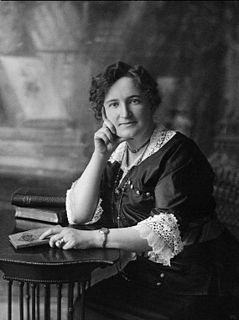A Quote by Nellie L. McClung
The average reader can contemplate with considerable fortitude the sorrows and disappointments of someone else.
Quote Topics
Related Quotes
You can eliminate depression without making someone happy. You can cure anxiety without teaching someone optimism. You can return someone to work without improving their job performance. If all you strive for is diminishing the bad, you'll only attain the average and you'll miss out entirely on the opportunity to exceed the average.
People are always pleased to indulge their religiosity when it allows them to stand in judgment of someone else, licenses them to feel superior to someone else, tells them they are more righteous than someone else. They are less enthusiastic when religiosity demands that they be compassionate to someone else. That they show charity, service and mercy to everyone else.

































